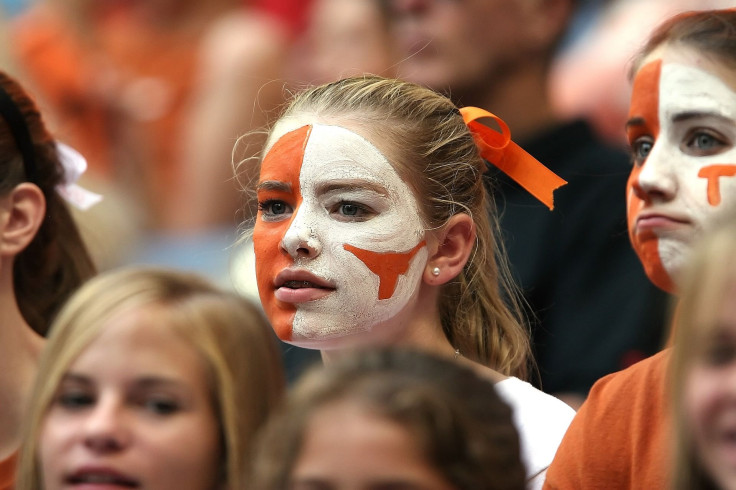Sports Fans: Who Is More Passionate, Men Or Women?

When it comes to sports, die-hard fans are often thought of as the men in the crowd. But my new research shows, that despite popular stereotypes of women lacking sporting knowledge or only being interested in the sexual attractiveness of (male) star players – female fans are just as passionate and committed to their clubs as the men.
Based on a host of intensive interviews with football and rugby union fans from three generations in one area in the UK (Leicester), my latest findings show that, unlike the stereotypes, sport plays a hugely important role in the lives and identities of many female fans.
Perhaps in part because of these popular (and sexist) assumptions and stereotypes of female fans, very little research has examined women’s experiences as sports fans. Most studies have instead focused exclusively on male supporters and issues of fan rivalry and hooliganism.
My work tackles head-on the lack of research on female sports fans. It also challenges the perceptions of women as inauthentic or inferior fans in comparison to male supporters.
The female fan
My own research shows there is a huge diversity of female supporter styles – meaning that there is a need to move away from distinctions between males as “authentic” and “real” supporters and females as “inauthentic” or not “real” fans.
What came through the research was two fan types: dedicated or highly committed “hot” fans, and more casual “cool” fans. Nearly 85% of the football fans and just under half of the rugby union fans I spoke to could best be described as “hot” sports fans.
For these dedicated fans, sport was an important aspect of their identity. This was often illustrated with mentions of their team on their CV, or by making new people they meet aware they are a fan of a particular club.These female fans invested large amounts of time watching or thinking about sport, with some of the extreme fans confessing that their club or team is almost “constantly” on their mind – as one female football fan explained:
Football’s always been my life. Like I said, playing it, watching it … I like lots of different sports but football’s always been the one if you like … the love of my life. That’s me, that’s part of me.
For female rugby union fans it was the same. One season ticket holder told me about the role sport plays in her life:
In order of priority, it’s (Leicester) Tigers and then it’s my other half and then it’s the kids and the grand-kids, you know, and everybody, they all know it. They’ve been told that that’s the order of importance.
The highs and lows
For these fans, sport produces extremes in terms of emotional responses depending on the match day results – and invariably this then impacts on relations with close relatives. For example, because the club formed such a significant part of these fan’s lives, organising other activities became extremely complicated – with some describing how family weddings needed to be planned carefully not to coincide with football matches.
Some of the intense football fans also confessed that they could not enter into a relationship with a supporter who did not follow the same club. As one female fan put it:
It’s a big part of my life, and if he can’t accept me as a Leicester fan then I’m afraid I don’t want to know you, sort of thing.
Many fans also reported having rooms or even a home dressed in club colours and products. And some of the football women also reported having tattoos of the club to demonstrate their allegiance.
A man’s world?
For the smaller number of “cool” female fans, the research showed sport did not impact upon their lives in the same way. Sport was viewed more as a “hobby” or form of “entertainment” – a leisure choice or “just one of the things I do in my spare time”.
While some female fans were fairly rooted as either “hot” or “cool” female fans, in some cases there was some shifting between these two modes. Having children was shown to be one of the main factors which affected this movement – which is probably representative of the fact that many women are still responsible for the main bulk of childcare and housework.
What all this shows is the need to start taking female sports fans more seriously. Because by dismissing women who love their club as much as they love their family, not only are a large number of the fan base being alienated, but ultimately there is a also a risk of sport becoming a male-only pastime.
Stacey Pope, Associate Professor in School of Applied Social Sciences, Durham University
This article was originally published on The Conversation. Read the original article.






















